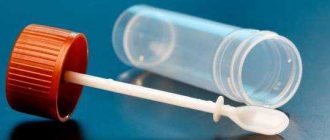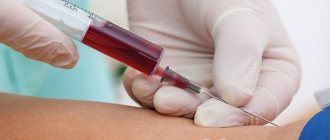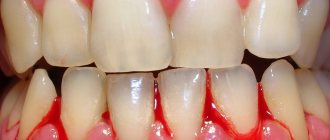The normal functioning of all systems of the female body depends on the normal hormonal balance. To make a correct diagnosis for many diseases, it is necessary to conduct tests to determine the concentration of a particular hormone, since the determination of the correct treatment tactics depends on their results. Such research is of particular relevance when planning pregnancy and during the period of bearing a child.
What tests need to be taken?
The balance of hormones is responsible for the functioning of the body. When it is violated, the development of various diseases is observed.
Blood tests for sex hormones
It is considered justified to conduct hormone tests for women:
- luteinizing;
- follicle-stimulating;
- atymüllerian;
- progesterone;
- prolactin;
- estradiol;
- testosterone.
Blood tests for thyroid hormones
Thyroid panel hormones are:
- thyroid-stimulating;
- triiodothyronine;
- thyroxine.
https://youtu.be/XqYenaxBxUU
What does “hormonal imbalance” mean?
The concentration of each hormone in the blood must be within a certain norm, only in this case the body will function as a coherent system. Deviation from the norm of at least one indicator can lead to violations of the most important functions of the main organs, and primarily this affects the reproductive system and the woman’s ability to become pregnant and give birth to a healthy child. Such disorders are called hormonal imbalance.
Even slight fluctuations in the level of production of the endocrine system indicate an imbalance in the functioning of the endocrine system, so it is important to regularly take tests and adjust the desired concentration using adequate therapy, the regimen of which can only be selected by an endocrinologist together with a gynecologist.
We recommend reading about when you should donate blood for thyroid hormone testing. From the article you will learn about the effect of thyroid hormones on the body, symptoms of disorders, and correction of hormonal disorders. And here is more information about hormonal imbalances.
A woman’s health and her fertility depend on many factors, but one of the determining factors is hormonal balance.
Detection of disturbances in the functioning of the producing glands is mandatory during the period of pregnancy planning, while carrying a child, especially if there are symptoms of diseases associated with disturbances in the functioning of the endocrine system, as well as during menopause, since correct correction of the balance allows you to endure this difficult period without deterioration in well-being .
How to get tested correctly
When submitting biological material, it is necessary to indicate the day of the cycle, the duration of pregnancy or the moment of menopause. If a woman is undergoing a course of antibacterial or hormonal therapy, this nuance must be reported to the laboratory assistant.
Before taking the tests, it is recommended:
- avoid sexual intercourse the day before the examination;
- do not take a hot bath;
- do not visit the sauna and steam bath;
- no smoking;
- do not overload yourself physically.
Hormonal tests: when and why are they prescribed?
Hormone levels are most often determined in the blood, less often in the urine. Hormone tests may be prescribed, for example, in the following cases:
- disturbances in the development of certain organs;
- pregnancy diagnosis;
- infertility;
- pregnancy with threat of miscarriage;
- kidney dysfunction;
- metabolic disorders;
- problems with hair, nails and skin;
- depression and other mental problems;
- tumor diseases.
A referral for analysis can be given by a pediatrician, therapist, endocrinologist, gynecologist, gastroenterologist, or psychiatrist.
Preparing for hormone tests
What rules should be followed when donating blood to analyze hormone levels so that the results are as accurate as possible? It is necessary to refrain from eating for 7-12 hours before blood collection. During the day before the study, alcohol, coffee, physical activity, stress, and sexual contact should be excluded. The possibility of taking medications during this period should be discussed with your doctor. When studying hormonal status, it is important for women to know which day of the cycle they should take tests. Thus, blood is donated for follicle-stimulating hormone, luteinizing hormones and prolactin on days 3–5 of the cycle, for testosterone on days 8–10, and for progesterone and estradiol on days 21–22.
If you donate daily urine, you should strictly adhere to the collection scheme and observe the storage conditions.
General principles of conducting and interpreting analysis
Blood for research is taken from a vein in the morning on an empty stomach. The study period is usually 1–2 days. The obtained result is compared by the doctor with the hormone concentration standards developed taking into account the patient’s gender, age and other factors. The patient himself can study these norms.
Laboratory diagnostic methods
Only a specialist (endocrinologist, gynecologist, therapist, gastroenterologist, etc.) can decide which tests need to be taken for hormones based on the results of the examination. Moreover, the number of tests is commensurate with the number of hormones, and there are more than 100 of them in the body. In the article we will consider only the most common types of studies.
Assessment of the somatotropic function of the pituitary gland is necessary for people who have gigantism, acromegaly (enlargement of the skull, hands and feet) or dwarfism. The normal level of somatotropic hormone in the blood is 0.2–13 mU/l, somatomedin-C is 220–996 ng/ml at the age of 14–16 years, 66–166 ng/ml after 80 years.
Pathologies of the pituitary-adrenal system are manifested in disruption of the body's homeostasis: increased blood clotting, increased carbohydrate synthesis, decreased protein and mineral metabolism. To diagnose such pathological conditions, it is necessary to determine the content of the following hormones in the body:
- Adrenocorticotropic hormone is responsible for skin pigmentation and the breakdown of fats; the norm is less than 22 pmol/l in the first half of the day and no more than 6 pmol/l in the second.
- Cortisol regulates metabolism, the norm is 250–720 nmol/l in the first half of the day and 50–250 nmol/l in the second (the difference in concentration should be at least 100 nmol/l).
- Free cortisol - is given if the presence of Itsenko-Cushing's disease is suspected. The amount of hormone in urine is 138–524 nmol/day.
These tests are often prescribed by endocrinologists for obesity or underweight; they are taken to determine whether there are serious hormonal imbalances and which ones.
Disruption of the thyroid gland is manifested by increased irritability, changes in body weight, increased blood pressure, and is fraught with gynecological diseases and infertility. What tests should be taken for thyroid hormones if at least several of the above symptoms are detected? First of all, we are talking about studying the levels of triiodothyronine (T3), thyroxine (T4) and thyroid-stimulating hormone (TSH), which regulate metabolic processes, mental activity, as well as the functions of the cardiovascular, reproductive and digestive systems. Normal hormone levels look like this:
- Total T3 – 1.1–3.15 pmol/l, free – 2.6–5.7 pmol/l.
- Total T4 – 60–140 nmol/l, free – 100–120 nmol/l.
- TSH – 0.2–4.2 mIU/l.
- Antibodies to thyroglobulin – up to 115 IU/ml.
- Antibodies to thyroid peroxidase – 35 IU/ml.
- T-Uptake – 0.32–0.48 units.
- Thyroglobulin – up to 55 ng/ml.
- Antibodies to microsomal antigen of thyrocytes – less than 1.0 U/l.
- Autoantibodies to thyroid-stimulating hormone receptors – 0–0.99 IU/l.
Failures in the regulation of calcium and phosphorus metabolism lead to osteoporosis or increased bone mineralization. Parathyroid hormone promotes calcium absorption in the intestinal tract, as well as reabsorption in the kidneys. The content of parathyroid hormone in the blood of an adult is 8–24 ng/l. Calcitonin promotes calcium deposition in bones, slowing its absorption in the gastrointestinal tract and increasing excretion in the kidneys. The normal level of calcitonin in the blood is 5.5–28 pmol/l. It is recommended to donate blood for tests of this type at the onset of menopause, since women during this period are most susceptible to osteoporosis.
The body of any person produces both male and female hormones. Their correct balance ensures the stability of the reproductive system, normal secondary sexual characteristics, and an even mental state. The production of certain sex hormones may be disrupted due to age, bad habits, heredity, and endocrine diseases.
Reproductive system dysfunctions caused by hormonal imbalances lead to male and female infertility, and also provoke miscarriages in pregnant women. If there are such problems, they donate blood to analyze female hormones, such as:
- Macroprolactin is the norm for men: 44.5–375 µIU/ml, for women: 59–619 µIU/ml.
- Prolactin - the norm is 40 to 600 mU/l.
- Pituitary gonadotropic hormones and prolactin - before menopause the ratio is 1.
- Follicle-stimulating hormone: its content in the follicular phase is normally 4-10 U/l, during the ovulation period - 10-25 U/l, during the luteal phase - 2-8 U/l.
- Estrogens (the norm in the follicular phase is 5–53 pg/ml, during the ovulation period – 90–299 pg/ml and 11–116 pg/ml during the luteal phase) and progestins.
- Luteinizing hormone - the norm in the follicular phase is 1-20 U/l, during the ovulation period - 26-94 U/l, during the luteal phase -0.61-16.3 U/l.
- Estradiol – the norm in the follicular phase is 68–1269 nmol/l, during the ovulation period – 131–1655 nmol/l, during the luteal phase – 91–861 nmol/l.
- Progesterone is the norm in the follicular phase - 0.3-0.7 µg/l, ovulation period - 0.7-1.6 µg/l, during the luteal phase 4.7-8.0 µg/l.
Why do you need a blood test for hormones?
Hormonal imbalance is considered a normal variant during pregnancy, the postpartum period or menopause. However, even in such situations it is necessary to monitor his condition. Hormone analysis is most often prescribed for:
- gaining excess weight;
- inability to conceive a child;
- often recurrent acne;
- diagnosing breast tumors;
- decreased libido;
- problems with pregnancy;
- susceptibility to genetic diseases;
- disruption of the functioning of the digestive tract;
- ovarian neoplasms;
- pregnancy diagnosis;
- hirsutism.
Indications for the study
Hormones are organic compounds that are produced in selector cells. Substances enter the blood and lymph. Hormones are required for the proper functioning of organs and systems. Failure in their production or excessive production can cause problems with conception and miscarriage. Hormonal imbalance can lead to a number of other problems.
The influence of internal and external factors on the level of hormones in the blood of women constantly fluctuates. Its changes occur from the end of one menstruation to the beginning of another, when a stressful situation occurs, depression, infectious and viral diseases. If the amount of hormones in a woman’s blood increases or decreases, this entails other disorders. As a result of this situation, the patient may experience a depressed emotional state, problems with the reproductive system and changes in appearance.
Hormone testing can be performed for preventive purposes. A doctor can also refer a patient for testing. An indication for a hormone test is a whole list of symptoms and conditions. The list includes:
- weakened immune system or private viral infection;
- insomnia or lack of stress tolerance;
- more than two miscarriages have occurred or polycystic ovary syndrome occurs;
- there is a sharp decrease or increase in weight;
- there is excessive baldness or male pattern hair growth;
- the patient has experienced edema or age-related changes;
- there is increased sweating or causeless mood swings;
- there are skin problems;
- puberty is delayed;
- menstrual cycle disorders are observed;
- no menstruation for more than 3 months.
Testing for hormones
Hormones, entering the bloodstream, are responsible for metabolic and biochemical processes. Thanks to the analysis, it is possible to diagnose hormonal imbalance, determine its cause and carry out therapy.
When to take it
It is recommended to be examined for:
- estradiol - on days 2-4 of the cycle, if necessary, to establish the time of ovulation - in the middle of the cycle;
- progesterone - on the 22nd day of the cycle, with scanty discharge - in the middle of the cycle;
- follicle-stimulating and luteinizing - on days 2-4 of the cycle or from 8 to 18 as recommended by a doctor;
- prolactin - regardless of the day of the cycle.
How to donate blood for hormones
The material being studied is venous blood. The analysis is carried out on the recommendation of a doctor, regardless of age. When undergoing a course of treatment, you need to stop taking medications, and if this is not possible, tell your doctor.
For each specific case, the optimal period for conducting the examination is determined. In addition, it is recommended:
- at least two days before the analysis, avoid physical and psychological stress;
- on the eve of the examination, avoid drinking alcohol, fatty and spicy foods;
- do not have sexual intercourse for at least three days before the examination;
- Do not smoke several hours before the procedure.
It is better to take a hormone test on an empty stomach in the morning.
What is the price
The study can be free if the patient has a referral and applies to a public medical institution.
In a private clinic the price will be about 600 rubles, it all depends on the type of analysis. Additionally, you will need to pay 200 rubles for collecting the test material.
FSH (follicle stimulating hormone)
The analysis is taken on the 3rd–8th or 19th–21st days of a woman’s menstrual cycle, for a man - on any day. Strictly on an empty stomach. In women, FSH stimulates the growth of follicles in the ovaries and the formation of estrogen. It promotes the growth of the endometrium in the uterus. Reaching a critical level of FSH in the middle of the cycle leads to ovulation.
In men, FSH is the main stimulator of the growth of the seminiferous tubules. FSH increases the concentration of testosterone in the blood, thereby ensuring sperm maturation. It happens that the hormone works at full strength, but there is no point where it is in demand. This happens when a man's testicles are small or have suffered from some kind of surgery or infection.
Normal sex hormones in women
Normal indicators vary depending on the phase of the menstrual cycle.
Ratio of FSH and LH
Before puberty, the normal ratio between FSH and LH is 1:1. With age, this proportion changes and becomes 1:1.5. The indicated value is considered the norm before the onset of menopause.
Hormone progesterone
Normal indicator:
- 0.3-2.2 nmol/l - in the follicular phase;
- 0.5-9.4 nmol/l - during ovulation;
- 7.0-56.6 nmol/l - at the luteal stage;
- less than 0.6 nmol/l - during menopause.
During pregnancy, this indicator will depend on the trimester.
| Trimester | Norm |
| 1 | 8,9-468,4 |
| 2 | 71,5-303,1 |
| 3 | 88,7-771, 5 |
Estradiol
| Cycle phase | Norm, pg/ml |
| follicular | 57-227 |
| ovulatory | 127-476 |
| luteal | 77-227 |
At the onset of menopause, the normal value is 19.7-82 pg/ml, and during pregnancy it ranges from 210 to 26960 pg/ml.
https://youtu.be/xLRnjaNMfbE
Testosterone levels in women
Testosterone is divided into two types:
- Free - determines only free testosterone, depends on age (up to 20 years - 0.13-3.09 pg / ml, from 20 to 39 - 0.14-2.6 pg / ml, over 60 - 0.14-1 .8 pg/ml).
- Total - indicates the total amount of the hormone, regardless of whether it is associated with protein transport. The norm is 0.26-1.3 ng/ml.
Estradiol
Blood is tested for this hormone throughout the entire menstrual cycle. Estradiol is produced by the maturing follicle, corpus luteum of the ovary, adrenal glands and even adipose tissue under the influence of FSH, LH and prolactin. In women, estradiol ensures the formation and regulation of menstrual function and the development of the egg. A woman ovulates 24-36 hours after a significant peak in estradiol. After ovulation, the hormone level decreases, and a second, smaller amplitude, rise occurs. Then there is a decline in the concentration of the hormone, which continues until the end of the luteal phase.
A necessary condition for the functioning of the hormone estradiol is its correct relationship to testosterone levels.
Decoding indicators
The results of the tests are quite important, because after assessing them, the doctor, together with other examinations, will be able to establish the cause, type of pathology and determine tactics to combat it.
Promotion
An increase in the amount of hormones indicates certain dysfunctions of the body. Estradiol can increase when:
- neoplasms of the genital organs;
- hyperfunction of the thyroid gland;
- consuming excessive amounts of estrogen-based drugs.
An increase in progesterone may indicate:
- ovarian cyst;
- dysfunction of hormone excretion;
- overdose of progestin drugs.
The increase in FSH is inherent to:
- menopause;
- neoplasms of the ovary, pituitary gland;
- autoimmune diseases;
- infectious diseases.
Luteinizing hormone can increase when:
- hereditary pathologies;
- tumors;
- inflammation of the meninges;
- hypofunction of the thyroid gland;
- performing operations on the pelvic organs;
- injuries.
https://youtu.be/pVvvL31e4oU
T4 (total thyroxine)
The concentration of T4 in the blood is higher than the concentration of T3. This hormone, by increasing the basal metabolic rate, increases heat production and oxygen consumption by all tissues of the body, with the exception of the tissues of the brain, spleen and testicles. Levels of the hormone in men and women normally remain relatively constant throughout life. However, in some areas, and Moscow is almost in first place, a decrease in the activity of the thyroid gland is often observed, which can lead to serious deviations in one’s own health and the health of the unborn child.
The cycle is an important component
The first nuance that is important for every girl to understand is the concept of the monthly cycle.
What it is? It is this component that will help you figure out on what day to take (female) hormones. The monthly cycle is the period between the onset of two critical days. That is, this is the time that begins on the first day of a woman’s period. It ends with the first day of the next critical days. A kind of guideline by which a woman can understand how much is left until her next period.
From a biological point of view, the monthly cycle is the period of maturation, life and death of the follicle. In a woman’s body, certain changes occur over equal (or similar) periods of time.
It is the menstrual cycle that will be used as a guide when taking tests for female hormones. When should I take them? What research needs to be done in this or that case? More on all this later.
Comparison table for hormonal concentrations
There are reference values that any doctor will focus on:
| Hormone | Follicular phase | Ovulatory phase | Luteal phase | In pregnant women | Menopause | In men |
| Prolactin | 4.5-33 ng/l | 5-42 ng/l | 4.9-40 ng/l | Does not require evaluation during pregnancy | Does not require assessment | 3-18 ng/l |
| FSH | 3.4-21.6 IU/l | 5.0-20.8 IU/l | 1.1-14.0 IU/l | 2.6-150 IU/l | 1.4-13.6 IU/l | |
| LH | 2.4-6.6 IU/l | 9.1-74.2 IU/l | 0.9-9.3 IU/l | 10.4-150.5 IU/l | 1.1-8.8 IU/l | |
| Progesterone | 0.32-2.23 nmol/l | 0.48-9.41 nmol/l | 6.99-56.63 nmol/l | Growth from 8.9 to 771.5 nmol/l | Less than 0.64 nmol/l | Not Evaluated |
| Estradiol | 68-1269 pmol/l | 131-1655 pmol/l | 91-861 pmol/l | Growth from week 9 to 38 from 1030 to 23700 pg/ml | Less than 73 pmol/l | 40-161 pmol/l |
But it should be borne in mind that each laboratory may have its own norms and units of measurement, which you should focus on first.
The human endocrine system is a rather complex mechanism on which a lot depends, from normal well-being to the ability to reproduce healthy offspring. External interference in hormonal levels is quite dangerous, but sometimes you can’t do without it, so only a specialist has the right to adjust hormones.
Since the concentration of hormones in the human body is not constant, tests for the amount of these substances must be carried out according to strict rules. On what day of the cycle should you take prolactin and how to prepare for the study - this article is devoted to this.
Read about the norms and deviations in the concentration of progesterone in the blood in the early stages of pregnancy in this material.
https://youtu.be/3DQ71SOz1G8
Deciding on the type of research
Specific tests are recommended for different conditions and pathologies:
- if you are overweight or have decreased appetite, measure the levels of leptin and ghrelin;
- in case of malfunctions in the functioning of the reproductive system - the content of LH, progesterone, estradiol, prolactin;
- for diagnosing diabetes mellitus - the ratio of hormones secreted by the thyroid gland plus insulin;
- for gastrointestinal pathologies - the concentration of gastrin, glucagon, somatostatin, acetylcholine, histamine, inhibitory peptide.
With the help of hormonal studies, it is possible to identify the cause of acne, developmental delays, slow growth, hair loss, mood instability, and depressive symptoms. And the values of tumor markers help in the diagnosis of malignant tumors and cancer relapses.
Examination of pregnant women
What tests should pregnant women undergo for hormones, and is it necessary at all? Determination of hormone concentrations is carried out repeatedly if pregnancy is complicated by the threat of termination or occurs as a result of assisted reproductive technologies. The main hormones studied: free subunit of human chorionic gonadotropin (β-hCG), progesterone, total and free testosterone, DHEA-S.
Pregnant women undergo comprehensive screening tests, combined with ultrasound, twice (11–14 and 16–20 weeks). The first time the level of β-hCG and the specific protein PAPP-A is determined, the second time the level of β-hCG, free estriol and alpha-fetoprotein is studied.
The levels of hormonal markers are taken into account as independent values and as factors influencing the calculation of the individual risk of having children with chromosomal disorders. The concentration of β-hCG decreases in Edwards syndrome, threatened abortion, non-developing and ectopic pregnancy. Increases in Down syndrome, multiple pregnancies and hydatidiform moles. But these are general conclusions. The tests are deciphered by the doctor, although the patient should still have an idea of the norm.
Causes of hormonal imbalance
A woman’s hormonal background is of great importance for the normal functioning of the entire body. A deficiency or excess of one of the hormones can lead to changes in the synthesis of other biologically active substances. The consequence of this is a hormonal imbalance.
For any disturbances in the female body, it is worth conducting a blood test to determine the level of sex hormones.
Possible reasons for the violation:
- use of oral contraceptives - after discontinuation of drugs, the endocrine system is very difficult to recover;
- taking emergency contraception - a sharp hormonal surge occurs, after which the menstrual cycle may be significantly disrupted;
- unauthorized use of any hormonal medications - medications of this nature should be prescribed only by a competent endocrinologist;
- disruption of the endocrine glands - may manifest as a result of their abnormal development or diseases;
- age-related physiological changes - puberty or menopause;
- termination of pregnancy - cessation of production of the hCG hormone leads to disruption of the synthesis of hormones such as estrogen, progesterone and testosterone;
- prolonged stress - in this situation, hormonal levels also suffer, and first of all, the synthesis of oxytocin changes.
https://youtu.be/MQEn8gLgrlU
17-keteosteroids
17-keteosteroids are a product of male hormone metabolism. Allows you to assess the condition of the adrenal glands. This is an extremely important component for pregnancy. In men, the study is carried out at any time. What about women?
It is important to understand that special rules apply to 17-keteosteroids. The point is that women will have to think carefully about when to take this test. Why?
Unlike all previously listed studies, 17-keterosteroids are determined by urine analysis. Accordingly, the girl should take care that there are no impurities in the urine. You cannot take the test during your period. Otherwise there are no restrictions. It is advisable to contact the laboratory on days 5-7 of the cycle. Urine must be in the morning.
In order for the analysis for 17-keteosteroids to give the most accurate result, several weeks before the test it is recommended to limit, or better yet completely eliminate, the intake of medications and drugs. And give up bad habits, namely, do not smoke or drink alcohol at least 3-4 days before the test.
Progesterone
Despite the fact that this hormone is a male hormone, it also plays a significant role for women. Progesterone is produced in small quantities by the adrenal glands, but a very important factor is its production by the ovaries at the time the egg leaves the follicle. This substance is directly responsible for normal gestation, and an insufficient amount of it can lead to miscarriage. During gestation, this hormone is produced by the corpus luteum for up to 16 weeks, and subsequently directly by the placenta. Progesterone deficiency does not allow planning a child. Deviations from the standard value are allowed only during pregnancy. In all cases, they are evidence of serious pathology.
It is correct to take a progesterone test on days 19-23 of the menstrual cycle and the indications for it are:
- absence of menstruation or irregular menstrual cycle,
- uterine bleeding,
- infertility,
- threat of miscarriage during pregnancy.
Testosterone
Testosterone is a male sex hormone. Formed in the gonads and adrenal cortex. Like female sex hormones, it has receptors in many systems and tissues of the body. Responsible for the development of secondary sexual characteristics, psychological awareness of gender, maintenance of sexual function (libido and potency), sperm maturation, development of the skeleton and muscle mass, stimulates the bone marrow, the activity of the sebaceous glands, improves mood.
In women, testosterone concentration is related to the menstrual cycle. Thus, the maximum concentration is determined in the luteal phase and during the period of ovulation.
Testosterone also has a daily rhythm of secretion: minimum at 20.00, maximum at 7.00.
In women, drinking alcohol during menopause, as well as menopause itself, burns, a low-fat diet, and poor nutrition cause a decrease in total testosterone. Smoking can cause both an increase in total and free testosterone and a decrease in total testosterone. Weight loss in obese women causes a decrease in free testosterone. During heat stress, both men and women experience a decrease in total testosterone.
Reasons for increased testosterone levels:
- premature puberty (in boys)
- adrenal hyperplasia
- tumors that produce sex hormones
Causes of low testosterone:
- Down syndrome
- renal, liver failure
- insufficiency of development of the gonads
T3-free
Free T3 is produced under the influence of TSH. It is produced by thyroid cells. There are both men and women. Prevents hypoxia in the unborn baby. When planning pregnancy or its occurrence, it is recommended to find out the levels of T3 and T4 in both parents.
On what day of the cycle is this test taken? There are no direct instructions on this matter. This means you can apply for research any day. It is best to calm down and rest for some time before taking the test. The rest period, as a rule, should last at least half an hour. It is best to conduct research at the beginning of the cycle.
Prolactin
You’ve learned a lot about what FSH is in women, so now it’s worth paying attention to a reliable remedy that will help maintain normal levels of this hormone. After watching this video, you will receive basic information about an incredibly effective drug that can cope with serious hormonal imbalances. Listen to the recommendations of specialists, and many problems will bypass you.
Hormone prolactin
Attention! The information presented in the article is for informational purposes only. The materials in the article do not encourage self-treatment. Only a qualified doctor can make a diagnosis and give treatment recommendations based on the individual characteristics of a particular patient.
Prolactin is a pituitary hormone necessary for the maturation of the mammary gland. Suppresses the secretion of sex hormones. Normally, it increases during sleep, physical activity, and sexual intercourse.
Serum prolactin is higher in women than in men. During the menstrual cycle, prolactin levels are higher in the luteal phase than in the follicular phase. During pregnancy, starting from the 8th week, prolactin levels begin to increase, which reaches maximum numbers by the end of the third trimester. After childbirth, it decreases and then increases during lactation.
An increase in prolactin is possible for the following reasons:
- pregnancy
- galactorrhea-amenorrhea syndrome
- pituitary tumor
- pathology of the hypothalamus
- hypothyroidism
- renal failure
A decrease in prolactin is usually caused by:
- pituitary insufficiency










